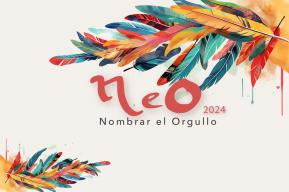Project
Measuring the economic contribution of cultural industries
Overview
Funds Allocated: 99 023,00 USD
Period: 2012 to 2013
Beneficiary countries: Zimbabwe
Applicant: Culture Fund of Zimbabwe Trust
Presentation
The project aims at promoting the growth and development of the cultural industries in Zimbabwe by empirically demonstrating their importance to the national economy. The Culture Fund of Zimbabwe is an NGO based in Harare. It was established as a trust in 2006. It provides technical and financial assistance to practitioners, institutions and activities, with the aim to contribute to the growth and development of the country’s culture sector. The organization’s mission is to promote a dynamic, diverse and sustainable sector imbued with national identity and values that would contribute to social and economic development. Its objectives include the establishment of a sustainable fund with robust management, identifying talent, creating innovation platforms in the cultural sector, enabling its stakeholders to access financial support, introducing their work to the market and also building their capacity and skills. It has implemented more than fifty capacity-building workshops and also a resource centre supporting arts and culture research whose activities have benefited individuals, schools, institutions and organizations. The organization is a key player in Zimbabwe’s arts and culture sector. One of the major achievements of the Culture Fund has been the commissioning of a seminal baseline survey for Zimbabwe’s culture sector in 2009, which has become a key reference document for cultural institutions across the country. It has recently collaborated with the National Arts Council of Zimbabwe and the Spanish embassy to produce the 2011 edition of Zimbabwe’s Arts Directory.
Local context
In Zimbabwe, the government has set up several institutions for the promotion of culture. The promulgation of the Copyright Act and the existence of various copyright-based industries in the country are also a manifestation of the importance attached to culture. However, very little attention has been given to the impact of culture on the economy. It is notable that managing Zimbabwe’s creative industries is a task shared by more than 10 different ministries. This fragmentation poses a considerable challenge in determining the impact of culture, especially because there is a dearth of data available to assess its economic performance. Since Zimbabwe’s cultural sector remains understudied, it is not perceived as a viable avenue for development and therefore given low priority. As a result, government financial support has been inadequate to ensure meaningful and sustainable growth in the sector.
Main objectives
The project’s main thrust is to collect data on the creative industries, followed by processing and analysis to better understand their impact on the economy. As data is collected and analyzed major findings and results are communicated to the public at large. Communicating results and delivering against them is another objective. Based on their main findings, the Culture Fund is intervening at policy, strategy and institutional levels to encourage growth of the culture sector and serve as a springboard for further research. The idea is to use empirical data to argue that the cultural sector is currently underdeveloped but that support, funding and policies stemming from a variety of stakeholders not only have the power to create a thriving cultural sector, but also to benefit on a wider scale job creation and income generation in Zimbabwe.
Main activities
- This project began by defining the range of economic activities that are considered relevant to the survey. It then constituted a survey team comprising cultural industries professionals, economists and statisticians with relevant backgrounds and experience. The team benefited from capacity-building workshops led by the Culture Fund and they play an active role in drafting the survey.
- This was followed by gathering existing data before launching the survey, in particular cultural industries data from capital city Harare and its vicinity. Then, data was processed in an effort to measure and understand the cultural sector’s contribution to the national economy, by estimating its input to the country’s GDP, its share of national employment and the revenue generated from international trade. It identified which segments of the creative industry are particularly relevant for Zimbabwe and analyzed their market structure, value chain, demand and supply patterns, employment, financing, policy framework and support from public and civil sectors.
- Survey results will be analyzed and presented in the form of a report distributed in both print and electronic versions to key public, private and civil society stakeholders in order to spark further debate, research and action in the field.










